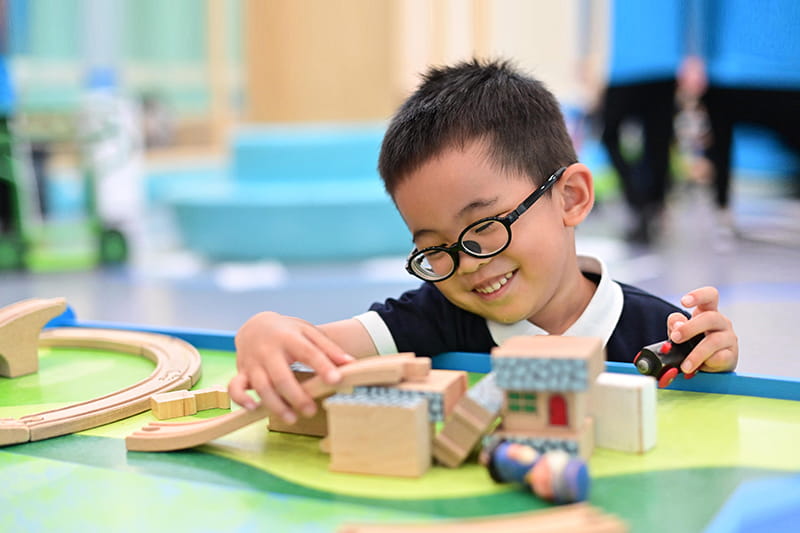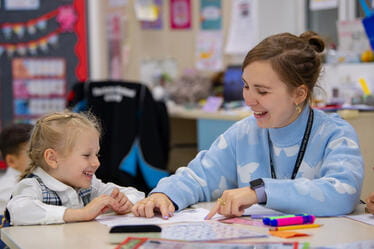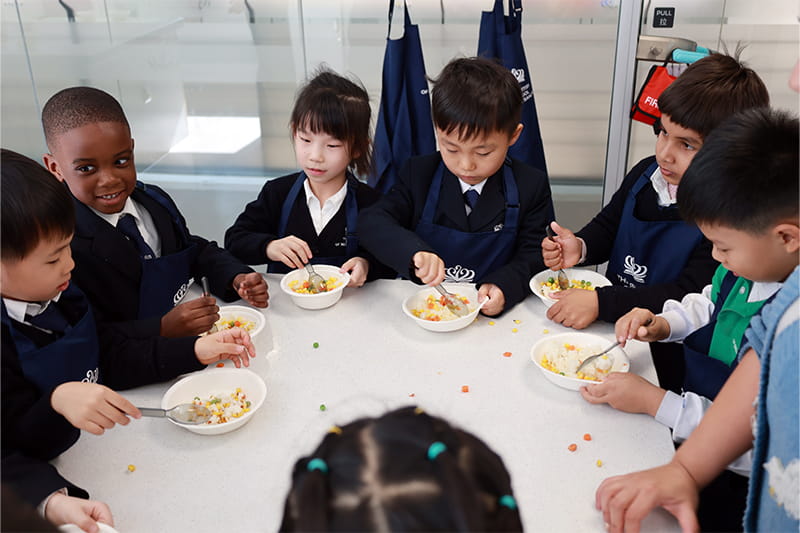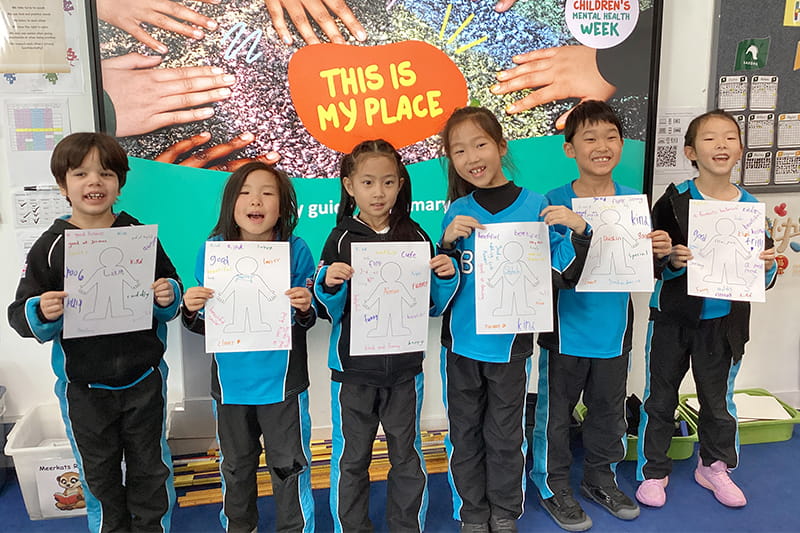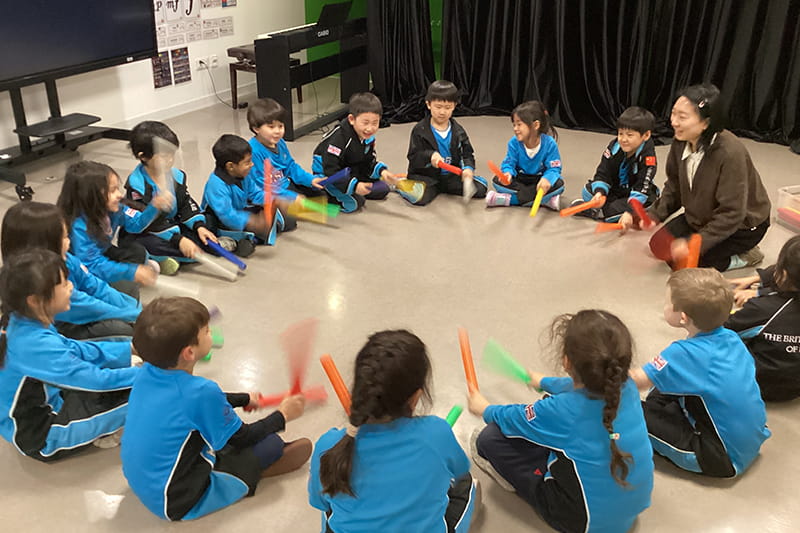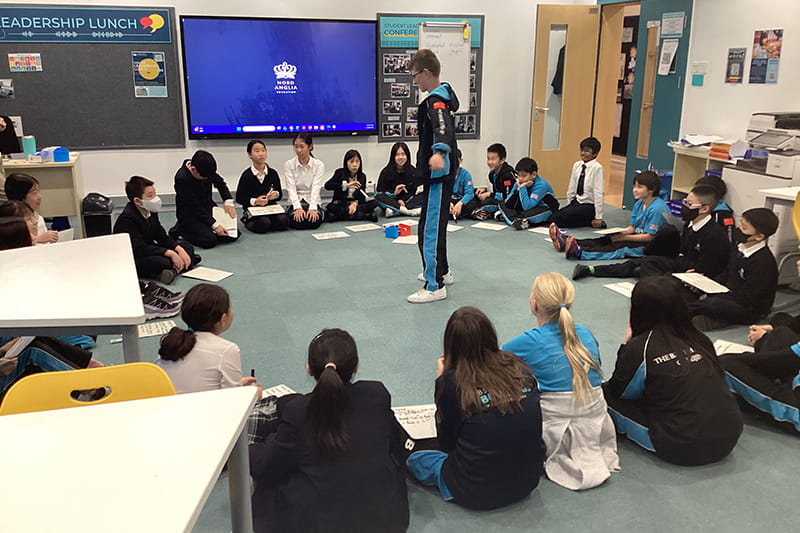At BSB Sanlitun, we believe in the power of play.
Our play-based learning approach to Early Years education nurtures every aspect of our youngest students’ development – the cognitive, the physical, the social, and the emotional. Through play, our preschool children hit key learning and developmental milestones. Play-based learning activities also ensure every moment is filled with joy, laughter, and exciting new discoveries.
In this article, we explain the importance of play. We also highlight the research-backed benefits of play-based learning in early childhood – and share some of the activities BSB Sanlitun’s littlest learners love!
What is play-based learning?
Play-based learning is, as you’ve probably guessed, learning through play.
In our preschool classrooms, play-based learning takes various forms. For instance, it might involve setting up hands-on sensory activities, such as a water table or a sandpit, where children experiment and discover new textures and properties. It might also involve imaginative play with dress-up clothes or pretend kitchens, which allows children to explore different roles and scenarios while developing their language and social skills.

The aim is to actively engage our Early Years children with the people, objects, and environment around them. These immersive, hands-on experiences develop lifelong skills, including problem-solving, creativity, and independence. They’re also proven to be a much more effective way for young children to learn.
The two types of play-based learning in early childhood
Play-based learning can be categorised into two types: free and guided play. Our expert Early Years teachers use both techniques in combination, personalising their approach to the individual needs of each child.
Free play
Free play, unstructured play, or child-directed play takes place without prompting from adults. For example, a group of children may create an imaginary world, establish their roles and rules, and play games without a teacher or support colleague giving any instructions or suggestions.
Guided play
Guided (or structured) play typically has some level of teacher involvement or guidance. For example, a teacher may help a child incorporate maths patterns into a building block activity or as part of story time.

Play-based learning is purposeful and backed by research
Our play-based learning approach to Early Years education is outcomes-driven, aligned with our curriculum, and grounded in science.
The research shows that play unlocks powerful learning opportunities across all areas of early childhood development – the social, the emotional, the cognitive, and the physical. In fact, studies confirm that children who take part in regular play-based learning develop better emotional intelligence, cognitive skills, and adaptability than those who engage in more traditional learning methods.
Academically, every activity and experience we offer is carefully aligned to our British Early Years Foundation Stage (EYFS) programme, which is part of the renowned English National Curriculum. This ensures our students hit key developmental milestones and that we deliver play-based learning activities that build fundamental pre-numeracy, literacy, analytical, and scientific skills.

What are the benefits of play-based learning?
Play-based learning brings an incredible array of short- and long-term benefits. We’ve highlighted some of these here.
- Cognitive development: Play enhances problem-solving, creativity, and critical thinking.
- Social and emotional growth: Play fosters cooperation, empathy, and emotional expression.
- Communication: Play boosts vocabulary, communication, and language comprehension.
- Motor skills: Physical play improves coordination and fine motor activities.
- Creativity: Play encourages imagination and innovation through role-play, arts, and crafts.
- Self-regulation: Play teaches decision-making, impulse control, and following rules.
- Confidence: Play builds self-esteem by providing opportunities to take control and choose activities.
- Engagement: Play keeps children motivated and involved in learning.
Examples of play-based learning activities
Throughout the Early Years at BSB Sanlitun, we deliver a carefully considered mix of age-appropriate, playful learning activities. These are designed to nurture every aspect of our students’ growth, as well as to create a happy, stimulating, and joy-filled environment.
Some examples of play-based learning activities include:
- Pretend play: Role-playing as animals, superheroes, or family members (develops creativity and social skills).
- Sensory play: Playing with sand or water (develops fine motor skills and sensory awareness).
- Outdoor play: Running, climbing, and ball games (develops physical coordination and social skills).
- Arts and crafts: Drawing, painting, and crafting (develops creativity and fine motor skills).
- Music and movement: Singing, dancing, and playing instruments (develops coordination and self-expression).
- Social play: Group games like hide-and-seek (develops communication and teamwork)
- Reading and storytelling: Listening to stories or making up their own (develops language and imagination).

Play-based learning in a safe and happy environment
Play-based learning takes place in our dedicated Early Years Li Building.
Our Li Building is home to imaginatively designed indoor and outdoor spaces, which are purpose-built to encourage experiential, playful learning. Our teachers foster a warm, welcoming environment, too, where children are safe and supported, and feel comfortable exploring. This ensures learning is effective and meaningful – and that our children love coming to school every day!
To find out more about play-based learning in the Early Years at BSB Sanlitun, please get in touch with sltadmissions@bsbsanlitun.com.

